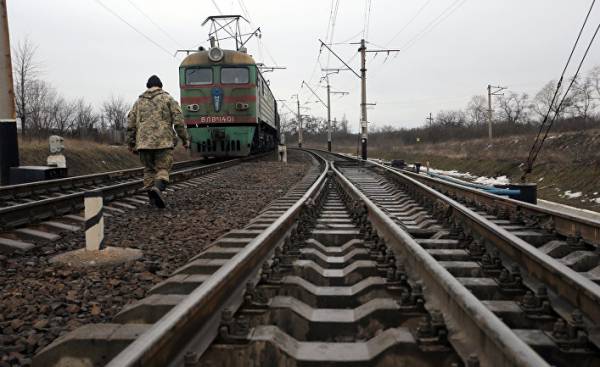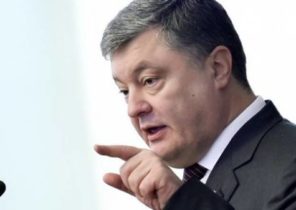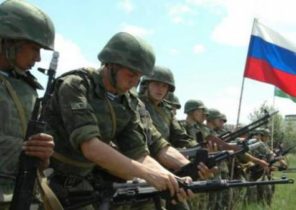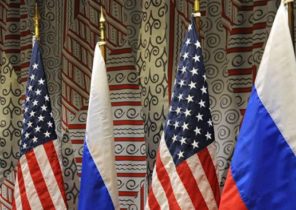
The need to consolidate the efforts of Ukrainian society in countering the aggression of Russia once again actualized the question of determining the economic levers of influence on our government.
It is well known that for the past ten years, and especially during his stay in power the Pro-Moscow clique headed by Yanukovych, the country has been involved in integration initiatives of Moscow in the former Soviet Union. At the same time the Russian Federation is constantly trying to establish control over the gas transportation system of Ukraine.
In addition, leading Ukrainian companies consciously get involved in the Russian integrated production processes. The Russian capital was gradually captured a dominant position in key sectors of the Ukrainian economy. Including Russian investors acquired controlling stakes in strategic Ukrainian enterprises, creating a joint Ukrainian-Russian company, to expand the presence of banking institutions and insurance firms.
Of particular interest to Russian companies was to increase investment in the Crimea. There they in 2009-2013 ranked second (368,7 million dollars) after Cyprus (426 million dollars).
If the February 2014 Revolution of dignity was defeated Yanukovych with the help of the Kremlin remained in power, the Russian Satrap without any hesitation in a very short time would eliminate the remnants of economic independence of Ukraine.
That is, the Ukrainian-Russian relations would cease to be interstate and be transformed into the relationship between Lord and vassal.
Therefore, in the conditions of undeclared war from the Russian side, questions of economic sovereignty are of particular importance. His defense is not just a priority but a necessary condition of maintaining real independence.
Thus, in this context, our situation is not unique. Different countries at different times and for different reasons took steps to limit the economic influence of the state, which in a particular historical moment become the enemy, or threatened national interests.
Big business usually has no nationality and is focused only on making a profit. So, during the Second world war, French entrepreneurs from the territory controlled by the Vichy (collaborationist government of France, formed after the defeat in the war with Nazi Germany, existed from 1940 to 1944, approx. ed.), successfully collaborated with Germany because he genuinely wanted the victory of Hitler, but because they had to do business. The French company supplied the Reich machines, aircraft engines and other necessary goods to the Nazis. About 20% of cars of the Wehrmacht was made in Vichy France.
But in Britain during the Second world war was created by the Ministry of economic warfare. Its main task is the creation of obstacles for the industry development of member countries of the “Axis” (Germany, Italy, Japan), reduction of production capacity of their industry, including military, to prevent delivery of strategic raw materials (including by military means) and thereby undermining the defense. And although historians continue to debate about the effectiveness of this Ministry, the fact remains that his work conclusively showed the determination of Britain to resist the enemy and the will of the British to win.
For various reasons, the so-called “sensitive” aspects of monitoring of international trade and foreign investment continued to be relevant after the Second world war.
When in the early 1960-ies the American capital has captured a dominant position in the canadian metal working, mechanical engineering, mining and oil industries, it caused serious concern of Ottawa. It was created in the early 1970-ies, the state Agency for foreign investments (Foreign Investment Review Agency, FIRA). Its main task was the supervision of compliance of the national interests of foreign investors acquiring important companies.
In 1975 a decree of President Ford created the Committee on foreign investment in USA (Committee on Foreign Investment in the United States, CFIUS). He forbade the acquisition of American companies by foreign, particularly Chinese, who would be able to access “sensitive” goods and technologies. After September 11, 2001, the Committee was given additional responsibility for supervision of intentions on acquisition by foreigners of “critical facilities” such as telecommunications, energy, transport.
As you can see, the state must establish rules for businesses. During the war — if you seek victory over the enemy. And in time of peace — if it plans to retain economic sovereignty.
In light of the undeclared war by Russia, it is necessary by regulation to limit Russian participation in the capital of enterprises of the basic industries and the financial sector.
That is, in the conditions of Russian aggression against Ukraine, we must use all available and possible mechanisms that will contribute to the reduction of opportunities of the Kremlin.







